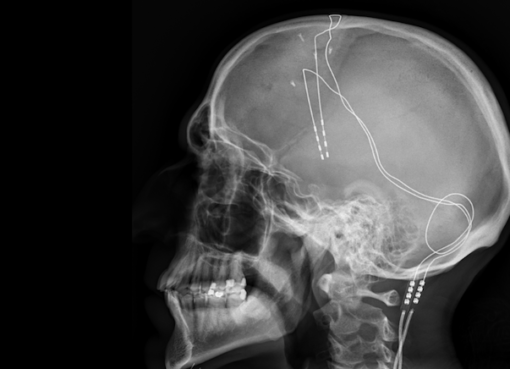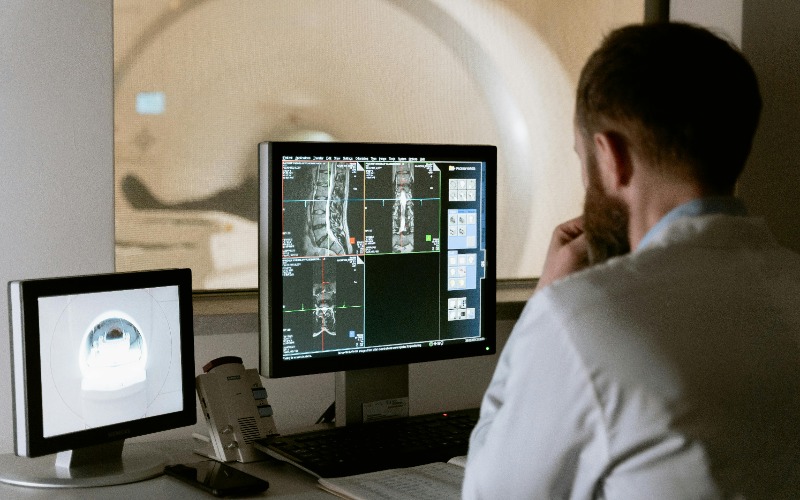The power of assistive technologies

Dementia care is one of the most challenging and complex areas of healthcare. With the number of people affected by this debilitating disease steadily increasing, there is an urgent need for innovative solutions. Fortunately, the advent of assistive technology has sparked a revolution in dementia care. By harnessing the power of technology, we are now able to provide better support and improve the quality of life for people with dementia and their caregivers.
Challenges of Dementia Care
Before delving deeper into the impact of assistive technologies, it is essential to understand the challenges faced in dementia care. The progressive nature of dementia significantly affects cognitive abilities, memory, and functionality, making it extremely difficult for individuals to perform daily tasks independently. Additionally, caregivers face immense emotional and physical strain, and often struggle to balance their own well-being with their caregiving responsibilities.
Dementia also presents barriers to communication, affecting the ability to express thoughts and needs effectively. The unpredictability of dementia symptoms poses additional challenges, making it difficult to provide consistent, personalized care.
Another important challenge in dementia care is the issue of behavioral and psychological symptoms, such as agitation, aggression and wandering. These symptoms can be distressing for both people with dementia and their caregivers, often requiring specialized interventions and support services. Effectively managing these behaviors while ensuring the safety and well-being of the individual is a complex task that requires patience, understanding and expertise.
The Rise of Assistive Technology in Dementia Care
Assistive technologies have been a game changer in dementia care, providing different ways to address the challenges faced by individuals and caregivers. Advances in technology have paved the way for innovative solutions that improve the lives of people affected by dementia.
- One such breakthrough in assistive technology is the use of artificial intelligence (AI) and machine learning. These technologies can analyze large amounts of data and recognize patterns, enabling early detection and personalized dementia management strategies. Machine learning algorithms can identify changes in mood, behavior and cognition, allowing caregivers to take proactive action.
- Another crucial area in dementia care is daily assistance. Assistive technology has given rise to a range of devices that can help people with dementia perform a variety of tasks independently. From medication reminder systems and dispensers to sensor-based safety devices, these tools provide practical support and promote independence.
- Virtual reality (VR) technology is also making significant advances in dementia care. Virtual reality programs are being developed to create immersive experiences that boost memory recall, cognitive functions and emotional well-being in people with dementia. By transporting users to familiar environments or engaging them in interactive activities, virtual reality has shown promising results in improving mood and reducing agitation in dementia patients.
- Additionally, wearable devices have revolutionized the way caregivers monitor and track the health and safety of people with dementia. Smartwatches equipped with GPS tracking and biometric sensors provide real-time data on the user’s location, heart rate and activity levels. These wearable devices provide peace of mind to caregivers by enabling remote monitoring and immediate response in the event of an emergency.
Improving support for caregivers through technology
Carers play a crucial role in supporting people with dementia. However, being a caregiver can be overwhelming, both physically and emotionally. Assistive technologies can greatly ease this burden by providing much-needed support.
For example, technological communication platforms allow caregivers to connect to support networks, share their experiences and seek advice from professionals. Virtual support groups and online forums provide a space for caregivers to vent, learn, and find comfort in the company of others facing similar challenges.
Additionally, wearable devices and remote monitoring systems allow caregivers to track the safety and well-being of their loved ones. These technologies provide peace of mind and reduce the risks associated with wandering or accidents.
Medical integration and supporting technologies
Assistive technologies are about more than just improving daily activities or providing support to caregivers. It also complements medical interventions for people with dementia.
Advanced digital health technologies and applications enable remote monitoring of health parameters, allowing healthcare professionals to quickly detect any changes or complications.
Additionally, assistive technologies such as robotic companions and smart home systems improve overall quality of life by promoting social engagement and stimulation.
Advances in early detection and diagnostic technologies
Early detection of dementia is crucial for effective management and intervention. Assistive technology has made significant advances in this area, offering non-invasive and accurate diagnostic tools.
Innovative imaging techniques, such as positron emission tomography (PET), combined with AI algorithms, can detect early signs of dementia even before symptoms become apparent. This enables rapid intervention and access to appropriate care, improving outcomes for people with dementia.
To further improve diagnostic accuracy, there has been an increasing focus on the development of biomarker tests. These tests, often considered essential medical tests for diagnosing dementia, analyze biological substances that may indicate the presence of Alzheimer’s disease and other types of dementia.
Blood tests, for example, are being refined to detect proteins and inflammatory markers associated with cognitive decline.
Additionally, integrating machine learning models with these testing protocols enables the analysis of large data sets, leading to more nuanced insights into the progression and types of dementia. This not only facilitates early detection, but also helps personalize treatment plans tailored to individual patient needs, thereby optimizing care strategies and improving quality of life. These advances demonstrate a hopeful future where technology and medical science will converge to effectively combat dementia.
Future Perspectives and Ethical Considerations
As technology continues to advance, the future of dementia care looks bright. However, it is essential to consider ethical implications, such as privacy concerns and the potential for dependence on technology. Striking a balance between technological interventions and human care is crucial to maximizing the benefits of assistive technologies while maintaining human contact. Ethical guidelines and ongoing research are essential to ensure safe and responsible use of technology in dementia care.
Conclusion
Assistive technology has become a lifeline for people with dementia and their caregivers, revolutionizing the way we approach dementia care. From early detection and daily assistance to supporting caregivers and improving quality of life, technology has immense potential to transform the lives of those affected by dementia.
By adopting and integrating these technological advances, we can pave the way for a future where dementia is managed with more efficiency, empathy and effectiveness.



Leave a Comment